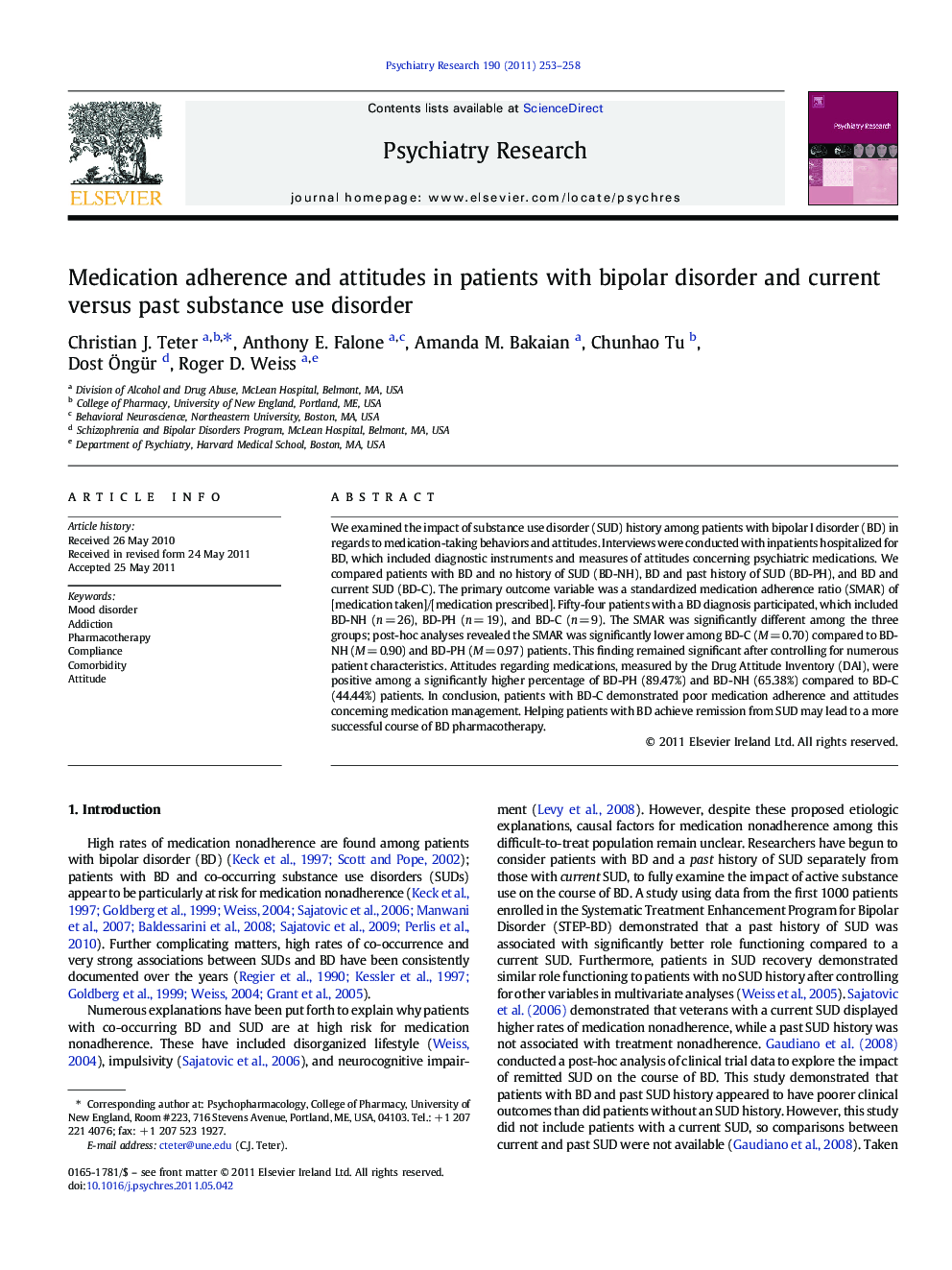| Article ID | Journal | Published Year | Pages | File Type |
|---|---|---|---|---|
| 6816287 | Psychiatry Research | 2011 | 6 Pages |
Abstract
We examined the impact of substance use disorder (SUD) history among patients with bipolar I disorder (BD) in regards to medication-taking behaviors and attitudes. Interviews were conducted with inpatients hospitalized for BD, which included diagnostic instruments and measures of attitudes concerning psychiatric medications. We compared patients with BD and no history of SUD (BD-NH), BD and past history of SUD (BD-PH), and BD and current SUD (BD-C). The primary outcome variable was a standardized medication adherence ratio (SMAR) of [medication taken]/[medication prescribed]. Fifty-four patients with a BD diagnosis participated, which included BD-NH (n = 26), BD-PH (n = 19), and BD-C (n = 9). The SMAR was significantly different among the three groups; post-hoc analyses revealed the SMAR was significantly lower among BD-C (M = 0.70) compared to BD-NH (M = 0.90) and BD-PH (M = 0.97) patients. This finding remained significant after controlling for numerous patient characteristics. Attitudes regarding medications, measured by the Drug Attitude Inventory (DAI), were positive among a significantly higher percentage of BD-PH (89.47%) and BD-NH (65.38%) compared to BD-C (44.44%) patients. In conclusion, patients with BD-C demonstrated poor medication adherence and attitudes concerning medication management. Helping patients with BD achieve remission from SUD may lead to a more successful course of BD pharmacotherapy.
Related Topics
Life Sciences
Neuroscience
Biological Psychiatry
Authors
Christian J. Teter, Anthony E. Falone, Amanda M. Bakaian, Chunhao Tu, Dost Ãngür, Roger D. Weiss,
